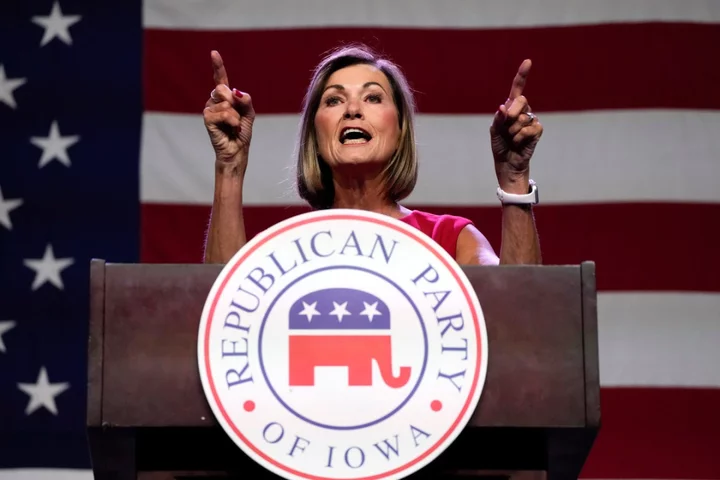
Federal funds will pay to send Iowa troops to the US-Mexico border, governor says
About a hundred Iowa National Guard troops will be sent to the U.S.-Mexico border for the month of August in a federally funded operation, Republican Gov. Kim Reynolds announced Wednesday. The move reflects a broader trend across the country of Republican governors joining forces with Texas Gov. Greg Abbott to counter President Joe Biden's immigration policies, which they say have created a crisis at the border. “Since the administration refuses to invest in securing the border and protecting its citizens, Texas has asked other states to help, and Iowa is ready and willing to assist," Reynolds said in a statement. The Biden administration sent 1,500 active-duty troops for a 90-day deployment in May, amid concerns that the end of asylum restrictions linked to the pandemic would lead to an increase in illegal border crossings. Even when the restrictions were in place, a record number of people were crossing the border. Instead, numbers have fallen, and 1,100 troops will conclude their 90-day mission by Aug. 8, a defense official said on the condition of anonymity in order to discuss details ahead of an announcement. The remaining 400 will be extended through August 31. An additional 2,300 National Guard troops remain at the border under federal orders. This is the third time since 2020 that Reynolds is sending troops to the country’s southern border. Officers with the state’s Department of Public Safety will follow National Guard troops at the end of August for the month of September. The governor’s office indicated in May, when the deployment was first announced, that about 30 public safety officers would be sent. Iowa's neighbor, Nebraska, will also dispatch about 60 troops to the southern border in August, Republican Gov. Jim Pillen announced Monday. Governors in Florida, Virginia and South Carolina, among other states, have made similar deployments for Operation Lone Star, a multibillion dollar operation that is distinct from federal efforts, and whose lack of transparency and metrics have drawn questions. ___ Associated Press writers Tara Copp and Rebecca Santana contributed to this story from Washington. Read More Ukraine war’s heaviest fight rages in east - follow live Charity boss speaks out over ‘traumatic’ encounter with royal aide
1970-01-01 08:00
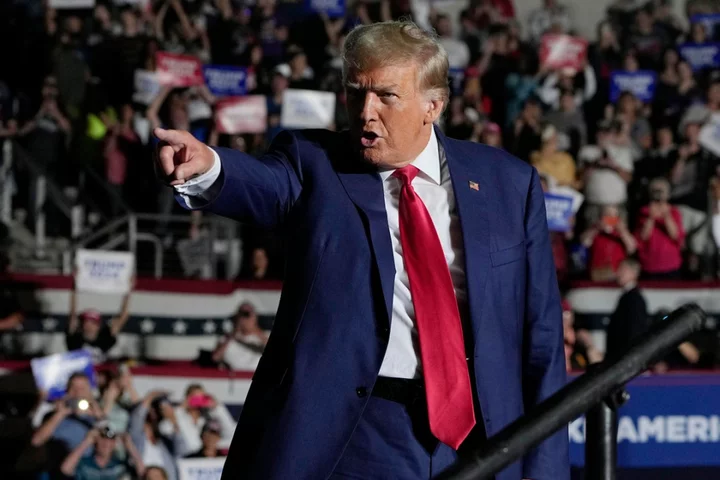
Trump supporters falsely claim special counsel seeking death penalty in indictment over 2020 election
Donald Trump supporters and right-wing media outlets are incorrectly claiming that the federal government is seeking the death penalty as part of its four-count indictment against the former president for allegedly seeking to overturn the 2020 election. After the charges were announced on Tuesday, the claims quickly spread across conservative corners of the Internet. Mr Trump’s Truth Social platform sent users an alert that read “New charges against Trump carry DEATH PENALTY,” while conservative influencer Dinesh D’Souza claimed on X the alleged death sentence “proves how scared they are of Trump!” One MAGA Internet personality wrote on social media, “This is how you start a war.” A spokesperson for the special counsel’s office told The Independent these claims are “not accurate.” “The indictment does not contain the special findings required,” the DoJ official said. The misinterpretation stems from one of the federal statutes that prosecutors are accusing Mr Trump of violating, Section 241 of Title 18 of US Code. As The Independent has reported, the law is part of a landmark set of provisions passed in the brutal aftermath of the Civil War to prosecute those who sought to deprive the civil rights of newly enfranchised Black Americans. The punishment for violating this section, according to the Department of Justice, is a felony and up to 10 years in prison. That penalty can be extended to life in prison or death if the government “proves an aggravating factor (such as that the offense involved kidnapping, aggravated sexual abuse, or resulted in death)”, per the DoJ. Five people, a mix of police officers and rioters, did die during the January 6 insurrection, but, as The Washington Post noted, nowhere in the lengthy indictment against Mr Trump are prosecutors arguing the former president is responsible for any such aggravating circumstances. (Police officer Michael Byrd, who shot January 6 rioter Ashli Babbitt, was cleared of wrongdoing by the DoJ and the Capitol police in April of 2021, and two of the men who attacked Brian Sicknick, a Washington police officer who died during the insurrection, have been sentenced to prison.) Rather, the DoJ is alleging that Mr Trump and his associates knew he lost the election, but launched a multi-part conspiracy to hold onto power anyway, a scheme that included spreading false claims, attempting to send false slates of electors to Washington, and pressuring officials to meddle with the election certification process. The scheme was largely focused on a handful of counties in Georgia, Pennsylvania, Arizona, and Wisconsin, all of which have large communities of Black and Latino voters, who tend to vote for Democrats. “The attack on our nation’s capitol on January 6, 2021, was an unprecedented assault on the seat of American democracy,” special counsel Jack Smith said Tuesday in a press conference describing the indictment. “As described in the indictment, it was fueled by lies. Lies by the defendant targeted at obstructing a bedrock function of the US government – the nation’s process of collecting, counting and certifying the results of the presidential election.” As Sean Morales-Doyle, director of the voting rights and elections programme at the Brennan Center for Justice at the NYU School of Law, told The Independent, the civil rights statute in question has been used to prosecute officials for attempting to alter election results in the past. He pointed to the example of the 1915 case US v Mosley, where Oklahoma officials were punished for trying to exclude votes from a final tally. “If you read that case, you’d never be able to tell that it’s about race. And there’s not a word about race mentioned, but that’s really the story underlying it,” Mr Morales-Doyle told The Independent. “And that’s really, throughout our nation’s history, the battle over our democracy. The battle over the right to vote has not always but pretty consistently also been a fight that has race at its heart,” he added. “And that’s true now still, and I think it is an overlooked thread underlying much of the story about Trump’s attempt to overturn the 2020 election.” Prosecutors may not be arguing Mr Trump caused conduct worthy of the death penalty, but the former president’s sentencing still will be a delicate issue. "Possible jail time for Donald Trump if he’s convicted of one, some, or all the criminal cases is a fascinating but speculative business," former federal prosecutor Michael McAuliffe told Newsweek. "As for the federal cases charging Trump with crimes, the sentencing guidelines – which assign numerical values to various factors to create a range for a presumptive sentence – will prove inadequate." In regards to Mr Trump, both "the crimes and the defendant are singular.” Alex Woodward contributed reporting to this story. Read More Trump’s election fraud claims were always bogus. Will his history of lies finally catch up to him? Why Trump is charged under a civil rights law used to prosecute KKK terror Donald Trump due in court charged with ‘conspiracy to defraud United States’ Federal funds will pay to send Iowa troops to the US-Mexico border, governor says Prosecutors may be aiming for quick Trump trial by not naming alleged conspirators, experts say Watch view of Capitol Hill after police say no active shooter found
1970-01-01 08:00
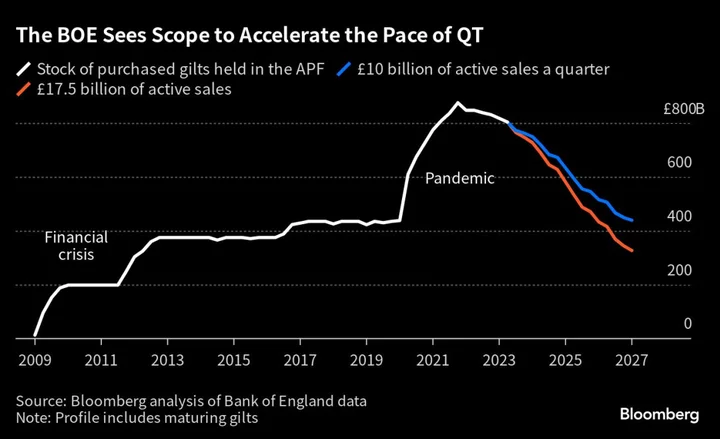
Bank of England May Slow Pace of UK Rate Hikes
The Bank of England is likely to boost interest rates again on Thursday, but a slowing in the
1970-01-01 08:00
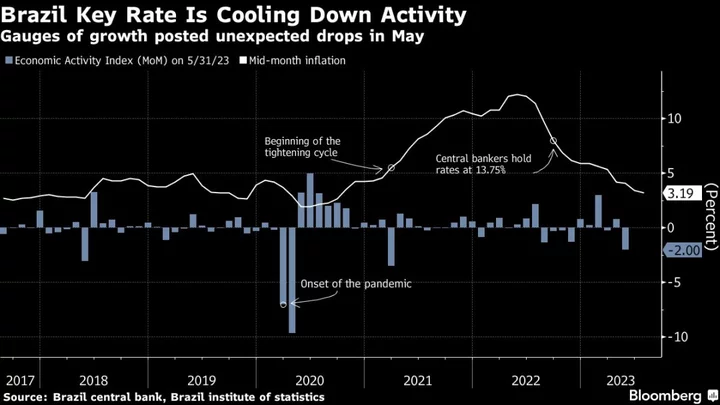
Brazil Kicks Off Easing Cycle With Surprise Half-Point Interest Rate Cut
Brazil’s central bank lowered its benchmark interest rate by a larger-than-expected 50 basis points and said future cuts
1970-01-01 08:00

When is Donald Trump’s arraignment?
Donald Trump was indicted for a third time on Tuesday on four federal charges stemming from an investigation into his alleged efforts to overturn the 2020 election leading to the January 6 attack on the Capitol. The indictment marks the second set of federal charges the ex-president is facing and the third indictment overall, since January. This means Mr Trump will have to appear in federal court, again, to be formally charged with conspiracy to defraud the United States, conspiracy to obstruct an official proceeding, conspiracy against rights and obstruction of, and attempt to obstruct, an official proceeding. The ex-president is expected to turn himself in at the Elijah Barrett Prettyman Federal Courthouse in Washington DC on Thursday afternoon at 4pm ET. Magistrate Judge Moxila A Upadhyaya will be presiding over the arraignment during which she will explain Mr Trump’s rights and the charges he is facing. Mr Trump’s case has been randomly assigned to District Judge Tanya Chutkan, who was appointed by former president Barack Obama in 2014. Unlike his two previous arraignments, Mr Trump has the option to appear virtually via video feed on Thursday – though it is unclear if he will do so. Mr Trump’s attorney, John Lauro, told CNN that Judge Chutkan may make the final call on whether he must appear in person or can do so virtually. Should Mr Trump appear in-person he will likely be fingerprinted before heading into the courtroom. The ex-president will most likely not be handcuffed or receive a mugshot as he has not done either in his previous arraignments. When Mr Trump was arraigned in Manhattan earlier this year for 37 charges related to falsifying business records he did not receive a mugshot because he is a public figure. Ahead of his arraignment, Anthony Guglielmi, chief of communications for the Secret Service posted on X, formerly known as Twitter, indicating several law enforcement agencies were working together to prepare for Mr Trump’s arraignment safely. “We are working closely with the Metropolitan Police Department, US Marshals Service, US Park Police, Us Capitol Police and the Federal Protective Service to ensure the highest levels of safety and security for the former president, while minimizing disruptions to the normal court process,” Mr Guglielmi wrote. The four federal charges were brought forth after a grand jury in Washington DC voted in favour of indicting Mr Trump. The charges come from an investigation by Special Counsel Jack Smith into Mr Trump’s claims of election fraud in 2020 and his actions leading up to January 6. Mr Trump is expected to plead not guilty to the four federal charges. Read More Trump indictment - live: Trump cashes in on new charges as defence lawyers gear up for court Is Donald Trump going to prison? Who are Trump’s six alleged co-conspirators in the 2020 election probe case? What is an arraignment? Here’s what to expect following Trump’s indictment for 2020 election interference Trump valet charged in classified documents case set again for arraignment after earlier delays
1970-01-01 08:00
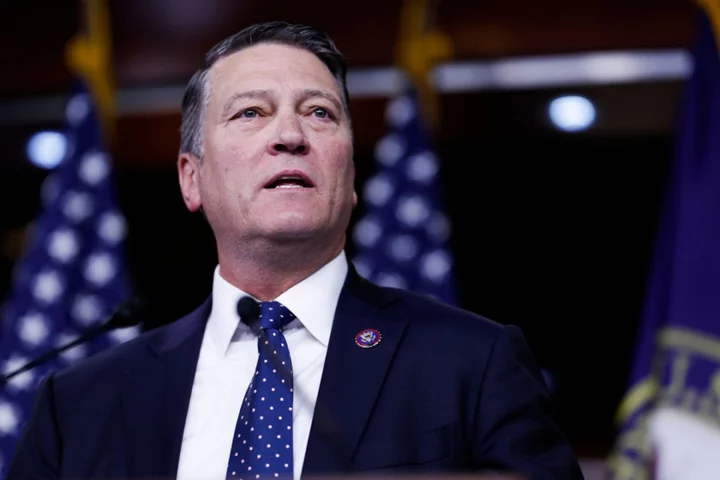
Trump’s former doctor slammed to the ground by police while trying to help teen at rodeo
A US congressman who previously served as White House doctor under Donald Trump was apparently handcuffed and placed on the ground by police officers at a rodeo in his home state of Texas as he attempted to provide medical assistance to a teenager. The Texas Tribune reported the incident, which was confirmed by Rep Ronny Jackson’s office. It took place over the weekend at a rodeo in White Deer, Texas, in a district that neighbours Mr Jackson’s own. “While assessing the patient in a very loud and chaotic environment, confusion developed with law enforcement on the scene and Dr Jackson was briefly detained and was actually prevented from further assisting the patient,” a spokesperson for his office told news outlets. According to a relative of the 15-year-old girl who was apparently experiencing a seizure at the time, Mr Jackson was slammed to the ground by police officers who responded too aggressively to a confusing scene. “We were just waiting for EMS to get there. The police came up, the deputies, highway patrol, and everyone was just screaming, ‘Get back, get back, get back,’” Linda Dianne Shouse told CNN. “[Jackson] was trying to tell them that he was a doctor and probably trying to tell him who he was, to be honest. And they were screaming that they did not effing care who he was,” she continued. “And the next thing I knew, they had him on the ground, grabbed him by the shirt, threw him on the ground, face first into the concrete and had him in cuffs.” According to Ms Shouse, the deputies later apologised for their conduct upon realising that Mr Jackson was both a trained medical professional — and a member of Congress. The Texas Tribune further noted that Mr Jackson’s office asserted that the congressman had been seated in the stands and had not imbibed any alcoholic beverages before attempting to assist the girl. It was a notable claim given that Mr Jackson has, in the past, been accused of drinking and taking Ambien while on the job serving as White House physician. He has denied the various allegations, but they nonetheless derailed his nomination to the Department of Veterans Affairs under Mr Trump. Mr Jackson has stoked controversy throughout his time in Congress with his comments about Joe Biden and other Democrats; in one instance, he referred to Mr Biden as “a cancer” during a TV interview, and he also floated nonsense conspiracies in 2022 about the Omicron Covid variant supposedly being a ginned-up fear tactic by Democrats to justify election fraud. Read More Donald Trump due in court charged with ‘conspiracy to defraud United States’ Biden delays plans to restock nation’s emergency oil reserve Democrats would prefer Kamala Harris over Joe Biden as 2024 nominee, new poll shows
1970-01-01 08:00
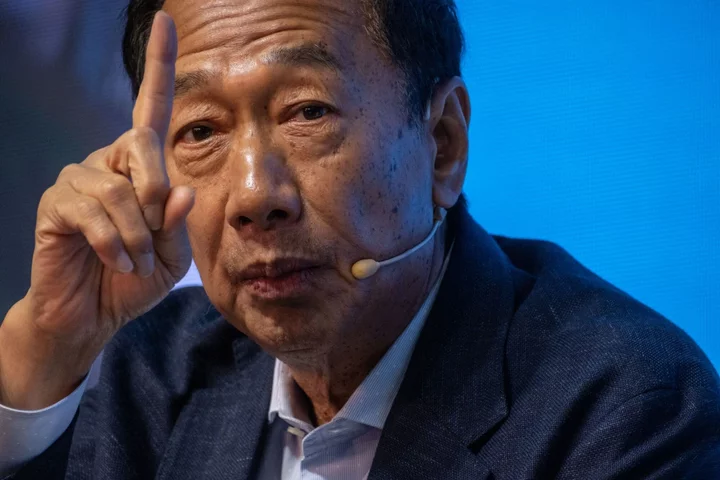
Foxconn’s Gou Says US Stocks Would Crash in Case of a Taiwan War
The founder of Apple Inc.’s key Taiwan-based supplier Foxconn Technology Group said US equities would tumble in the
1970-01-01 08:00
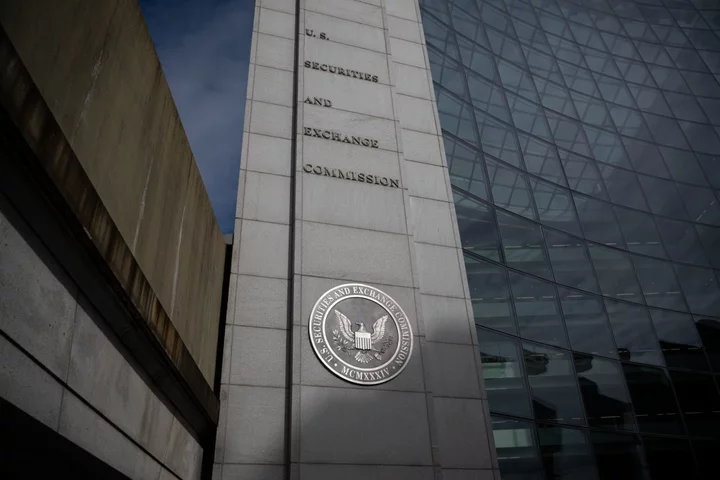
Trading Platform for College Students Sued by SEC Over Capital Rules
A former London Stock Exchange executive settled a Securities and Exchange Commission lawsuit over claims that he ran
1970-01-01 08:00
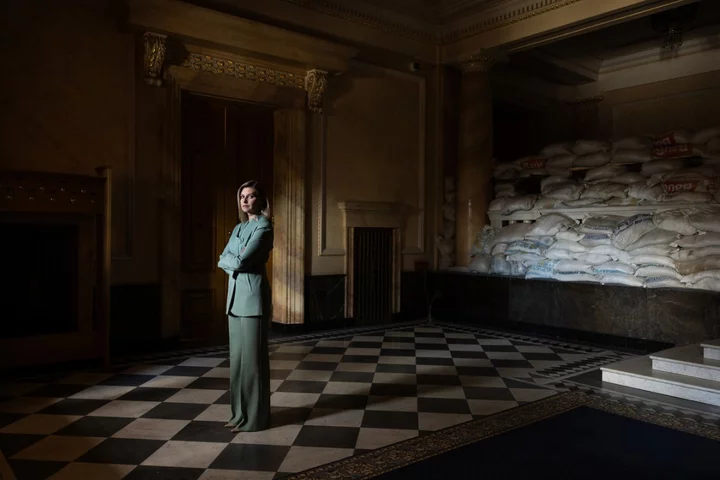
From the command centre in Kyiv, Olena Zelenska’s urgent plea to help her nation as war rages around her
As if on cue, the haunting wail of the air-raid siren sifts through the sunshine as we pull up to the checkpoint by the presidential complex in Kyiv. Like swathes of Ukraine, the contours of this heavily guarded compound have been re-carved by President Vladimir Putin’s invasion. Instead of a sweeping pedestrian boulevard leading to 10 Bankova – Ukraine’s 10 Downing Street – the complex is a disorientating labyrinth of blast walls, sandbags, and soldiers. Inside this bunker, it is as quiet and dark as a sunken cathedral. The windows are boarded up and filters cover each light casting an eerie muted glow. Sandbags, like used tissues, are wedged between marble columns. A chandelier which is not switched on, crowns the sweeping stairwell which leads up to makeshift barricades punctured by embrasures. It feels like the presidential compound and its inhabitants are poised and prepared. Including the First Lady - Olena Zelenska - whom we are here to meet. “I would like to say, ‘I’m fine’ but no one can say this phrase now in Ukraine,” she replies, “How are you?” the simplest of introductory questions that lands a bit limply under the current circumstances. Watch the interview trailer below The full interview will be available to watch on The Independent’s website and on your smart TV from August 7. “We are all tense. We are all waiting for victory. We are trying, and I am also trying, to keep our hand on the pulse. To wait for good news and to not lose hope,” she adds, with the briefest flick of a weary smile. Weariness is perhaps an apt word. It underpins her main message of this interview: concern that as Putin’s war grinds into its 18th bloody month, the international community might begin to lose interest or perspective on the battles chewing up Ukraine, with deadly consequences for everyone. “If the aggressor wins now, it will be the worst-case scenario for all of humanity,” she says with a quiet assurance. “This will mean that global deterrents aren’t working. This will mean that anyone with power, strength and sufficient financial capacity can do whatever they want in this world.” “We keep hearing from our Western partners that they will be with us as long as it takes. I would like to say that the word ‘long’ is not the word we should use. We should use the word ‘faster’.” Olena Zelenska, 45, I would argue, has one of the trickiest jobs in the world. War aside, like so many women thrust into a public spotlight that she never sought, she faces unrelenting scrutiny. The former comedy scriptwriter turned First Lady-at-war cannot smile too much, lest she be seen as not taking the devastation of the invasion seriously. But she can’t smile too little, or she is labelled ungrateful. There are endless discussions about her clothes (she was named among the best dressed at the coronation of King Charles III which she attended). Ukrainian diplomats tell me quietly on the sidelines, she is almost always asked about being a mother-of-two, a wife, a crutch-like appendage to her husband Volodymyr Zelensky, 45, over the crucial work she is doing on the ground. She is inevitably tossed the emotional questions, that interviewers may shy from asking the men. And so today, as we sit in the heart of the country’s operations hub, in the wake of an air raid, our hour-long conversation centres on her work. This ranges from building a network of hospitals and prosthetic centres treating an estimated 20,000 new amputees in the country - to launching mental health programmes to smash stigmas on trauma. We also talk about her latest passion: changing the role of first ladies and gentlemen around the world from individual “decorative” accessories to something more. She wants to “set a trend” where presidential partners “communicate, exchange experiences, create joint projects”. She speaks warmly about specific families that keep her motivated in her work – including a Ukrainian grandmother who “knocked on every door” to find her granddaughter who, like thousands of other children, had been disappeared into Russia by soldiers. Finding the tens of thousands of children that Ukraine accuses Russia of abducting is a personal mission for the first lady, which she calls “one of the biggest wounds in Ukraine”. “We are trying to get our children back. It is hard to find an area of children’s life that the war has not touched.” That includes the lives of her own children, who are forced to live separately from their father for security reasons – a topic she tentatively opens up about. “Maybe [now] it is more frequent that we can see each other altogether but these are still isolated instances,” she says, with a quiet sadness. “I am sure that we will pass this test.” All of this is a far cry from the woman who four years ago said she struggled with public speaking after advising her husband, then a colleague in their comedy troupe, against running for president. In fact, she didn’t even know he was going to go through with it: like the rest of the country, Mrs Zelenska found out about his presidential bid after a New Year’s Day television special in 2019. Mr Zelensky apparently “forgot” to mention the life-altering decision to his wife. But ever since President Putin ordered his troops to march on Kyiv – in an instant making her husband the war-time protector of Ukraine – she has put her fears aside. He donned military khaki and, standing outside the very building we are in, vowed never to flee Ukraine. She morphed into frontline ambassador, rallying lifesaving international support for a country in the grips of Europe’s bloodiest war in generations. She became one of the architects of the rebuilding of this nation, ravaged by a 2,000km frontline, even while the fighting goes on. If Ukraine doesn’t rebuild during the war it is “wasting time” even if there is a threat it gets destroyed again, she insists. “Wherever there are people, there should be reconstruction as soon as possible”. The truth is Mrs Zelenska could have left Ukraine permanently, like the wives of other Ukrainian politicians (under martial law only women can evacuate the country). Effectively a single parent now, she would have been forgiven for taking a step back to focus on her children. But she did not. Last July she addressed Congress, in November she spoke to the British parliament and in January she was at Davos in Switzerland. In all her speeches she pulls no punches. “We know that the youngest girl who was raped by the Russian occupiers is four years old. The oldest is 85 years old,” she told Westminster bluntly while urging the UK to help establish a Special Tribunal so Russia can face justice for its crimes. Back in Ukraine, she rallies the Ukrainian public through her social media accounts, urging families to “stay strong”. Like this week when Russian shelling eviscerated an apartment block in the southern city of Kryvyi Rih, which is also her and her husband’s hometown. And now here, in the presidential palace where her husband also works, she is eloquent and concise when talking. “All the fears, all the phobias, all the unpleasant moments that we experienced in peacetime fade into the background,” she says, explaining her transition to a public figure in war. “The fact that I said that I don't really like public speaking - does not matter now. I have to be effective in my role to support the president and the people of Ukraine.” And with a pause and shy smile, she adds “I hope they feel that I am”. As we meet in Kyiv, Ukraine is careering towards another catastrophe of this bloody war: hunger. In July, Russia turned its artillery turrets on Ukraine’s food and farming infrastructure after pulling out of a United Nations-brokered grain deal which allowed the safe exports of Ukraine’s grains and oils via the Black Sea. Officials from the UN told me that at the start of this year, despite the war, the World Food Programme still purchased food from Ukraine to feed the most vulnerable in places like sub-Saharan Africa and the Middle East. And so it is unthinkable that Ukraine, the “breadbasket of the world”, may not be able to even feed its own population. But grain storages, ports and farmlands are on fire right now. This is having global consequences. Wheat prices have already soared, even driving up our shopping lists in the comfort of Western Europe. The UN has warned of famine and destitution. Mrs Zelenska reminds me this is only the latest in a series of humanitarian crises in Ukraine that ripple past its borders. In June the bombing of the Kakhovka Dam, which Kyiv blames on Moscow, unleashed the waters of one of Europe’s largest reservoirs over southern Ukraine – causing one of the worst ecological disasters on the continent in recent history. “Today's stage is another stage,” she says grimly of the attacks on food. “Ukrainians understand that our enemy is capable of inventing of any challenges for us.” She says Ukrainians have adapted and are now well prepared for any new horrors on the horizon. “The most popular Telegram [instant messaging] channel in Ukraine is not an entertainment channel, it is one that publishes the fastest news about the whereabouts and consequences of shelling and what is happening in relation to the war.” “The popularity of this Telegram channel speaks for what Ukrainians live by. We are no longer surprised by anything,” she adds echoing a popular refrain in the country. The cumulative consequences of these myriad crises in Ukraine are why the first lady says she decided to tap her contacts and create her own humanitarian aid organisation. The Olena Zelenska Foundation was eventually launched in September in New York with a star-studded guest list including US former secretary of state and first lady, Hillary Clinton, and Matt Damon. Among several projects, so far it has rebuilt hospitals in recently de-occupied areas like Izyum near the border with Russia and delivered tens of thousands of laptops to children, as a third of all schools in Ukraine are closed. “It seemed to me that just talking on international platforms is not enough for the first lady,” she continues, her eyes lighting up. “I realised that I could put together this puzzle, unite those who want to help and those who need help.” This is part of her wider mission to redefine what it means for everyone married to a president. She wants the spouses of world leaders to stop waving prettily on the sidelines and work together to build their own community to do good. “We can no longer perform only a decorative function. We cannot just stand nicely next to the head of state. First ladies and gentlemen can try harder and do much more.” “I hope this is the case, that we have set a new trend.” And so despite being at war, this September she will host a third “Summit of First Ladies and Gentlemen” in Kyiv where she will gather “her colleagues” in person and virtually. This session will focus on mental health, a topic which is already “very painful for Ukraine” and the world, she says. Ukraine is, in many ways, quite traditional. And since Moscow’s forces marched across the borders on 24 February, there has been societal pressure for everyone to have a stiff upper lip. There is a ‘Dulce et decorum est pro patria mori’ attitude, even if that means dying on the inside for your country. This war is brutal. It is bloody. It is frightening. Artillery – indiscriminate and terrible – is relentless. Drones hit so fast that you cannot hear them coming. Banned weaponry like cluster munitions, in a single rocket, can shower their terror on territory the size of a football pitch. Everyone lives in a world of averages and percentages of survival, a ruse to feel better that is obliterated by the deadly whistle of a single shell. An unknown number of people have been killed, there is no accurate casualty count. There could be significantly more than 100,000 missing people, one Ukrainian top prosecutor told me in February. We have also documented horrific testimonies of torture and rape at the hands of Russian soldiers adding to this wartime mental health epidemic (Russia denies all the accusations of committing crimes). Mrs Zelenska says Ukraine’s General Prosecutor’s Office is currently investigating a little more than 100 cases of sexual violence against men and women, but the true number of cases is hundreds of times that. “The main problem is that people are afraid to speak about this, afraid of judgement, afraid of gossip. They are afraid that their life will be destroyed,”’ she adds, describing a new programme called “How Are You?” which assists people in opening up and getting psychological support. “This is the most stigmatised crime of all the war crimes. It is terrible because victims pay with their whole lives. Some of them say that ‘it would be easier if they killed me, because what happened to me kills me every day and never ends’. “It destroys families.” Children are not spared this torment, she continues, her most emotional point in the interview. “Robbed of their childhood” she explains, many have “lost the will to live”. “It is the most tragic thing to see when a child cannot smile, does not speak, or stops eating, these are terrible things we have to deal with now.” According to Ukraine, at least 19,500 children have been forcibly transferred to Russia, a number Mrs Zelenska tells me is a woefully low estimate – as authorities have documented “whole orphanages have been cleared out”. Russia denies it has been abducting Ukrainian children but President Putin himself has been handed an arrest warrant by the International Criminal Court for the alleged crime. This, the first lady says, sends a powerful “symbolic” message that the world “sees this crime… and considers [President Putin] to be a criminal.” “We hope it will have practical implications. Because they take away children who were separated from their parents during filtration, they clear out whole institutions. They simply put all the children on buses and take them to an unknown destination.” So far, Ukraine has only managed to retrieve 380 of the missing children, but Mrs Zelenska indicates there is a new coalition of international partners that will start work on retrieving the rest soon. There are rare happy stories from these tragedies which the first lady says keeps her going and motivated. She talks about meeting a girl from the eastern Donetsk region who was taken to Russia after her mother, who had a military background, was captured by Russian soldiers at a “filtration” point. The grandmother worked day and night to find her, eventually enlisting the help of Ukraine’s top prosecutors. In the end the girl was located, the mother was exchanged in a prisoner swap and by some miracle they were all reunited. “Just imagine the tragedy of this family, which was scattered by this war, not knowing where they all are for such a long time. It is difficult to fathom how you can keep going and not break down,” she says. The Zelensky family has also been scattered by this war. And reading her face, it seems she is thinking in part about her own children as she speaks about this. For the first month and a half of the war, her husband – her college sweetheart turned number one target of the entire Russian army – could not see his family at all over concern for the safety of the children. They still live separately now but can at least sporadically visit each other in the building where we conduct the interview. It is easier for her eldest, Oleksandra, now 19, who is old enough to come to the presidential office on her own and see her father as she needs, Mrs Zelenska explains. Kyrylo, still only 10, “needs a father not just once or twice a week,” she says. “To raise children, you need a constant example,” not just “video calls”, she continues. “These are not only conversations and stories about how you should act. These are immediate examples of how you behave in everyday situations, and how you solve particular problems. And, unfortunately, our children don't get much of this help now. This “confuses” her, she says, repeating that phrase a few times. “I am sure that we will pass this test,” she adds, leaning forward. “We all love each other and trust each other. We really hope that somehow all this will change, and we will be able to live a more or less normal family life.” For a second, the personal motivations for wanting the war to end peep through her near-perfect stateswoman demeanour. For an instant, there is a glimpse of an exhausted parent just wanting her family back together again. And then she clicks back to speaking about the rest of Ukraine. For all families in the country this depends on winning the war, which in turn depends on the international community, she continues. Ukraine has “no other way out” than enduring. “It is a matter of survival. That's why it's so hard because it's been going on for so long. That is why we need news that gives us hope.” And they need help to do that. The first lady is worried that some countries have started to underestimate the threat of Russia because it seems “so far away” and if Moscow wins, it will impact the world order. “Ukrainians are paying for this with the lives of their compatriots, the rest of the world just pays with its resources,” she says in a direct appeal to the international community before we bring the interview to a close. She has a string of meetings to get to about the prosthetics centre she has helped build. “Please don’t get fatigued, because we as Ukrainians have no right to get tired.” “Ukraine defends not only its interests, not only its existence, we are trying to maintain the entire democratic balance of the world.” With additional reporting by Nikol Goldman The full interview will be available to watch on independent.tv and your smart TV from August 7. To find out more about our Independent TV smart TV app click here. Read More The Body in the Woods | An Independent TV Original Documentary The harrowing discovery at centre of The Independent’s new documentary Russia should expect more drone attacks on its soil after latest Moscow strike, Ukraine warns Drones, military confusion and cracks in Putin’s authority: Ukraine’s push to sow discord in Russia’s ranks On the ground in Ukraine, there’s one weapon troops want from the UK more than any other
1970-01-01 08:00
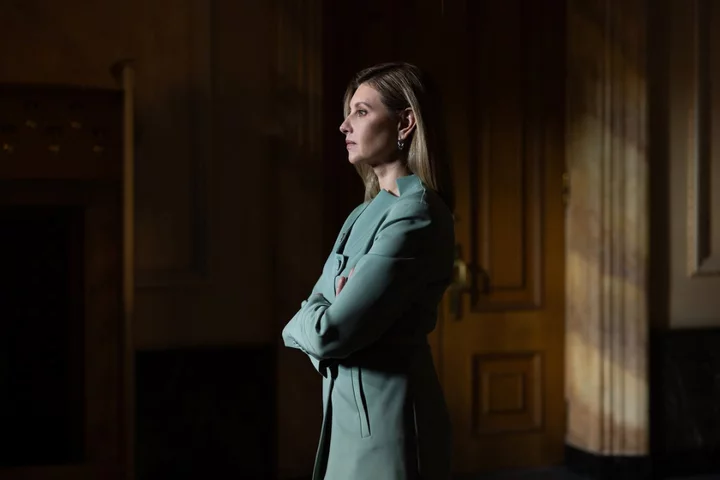
If Russia wins now it’s the worst-case scenario for humanity, warns Ukraine’s first lady Olena Zelenska
Ukraine’s first lady has warned that Russia winning the war it started is “the worst-case scenario for all humanity”, in a heartfelt plea for the world not to lose interest in her country as its soldiers are fighting for “the democratic balance of the world”. Speaking exclusively to Independent TV, Olena Zelenska said Ukraine is deeply concerned that the world is underestimating the wider threat from Moscow as the conflict grinds into its 18th month. Read the full interview here The Ukrainian military has been fighting one of Europe’s bloodiest conflicts since the Second World War after Russian president Vladimir Putin launched his invasion last February. “If the aggressor wins now, it will be the worst-case scenario for all of humanity,” Ms Zelenska said from the heavily guarded presidential palace in Kyiv. “This will mean that global deterrents aren’t working. This will mean that anyone with power, strength and sufficient financial capacity can do whatever they want.” She said that her country desperately needs “faster” support to be able to combat the better-equipped Russian troops; pledges of long-term military and humanitarian aid will not help win the war if delivery is too slow, she warned. “We keep hearing from our Western partners that they will be with us as long as it takes. ‘Long’ is not the word we should use. We should use the word ‘faster’,” she said. “Ukrainians are paying for this war with the lives of our compatriots. The rest of the world pays with its resources. These are incomparable things, so we urge you to speed up this help,” she added. Ms Zelenska, a comedy screenwriter and childhood sweetheart of Ukraine’s leader Volodymyr Zelensky, initially shunned the public spotlight, advising her husband against running for president four years ago. But as soon as Mr Putin launched his full-scale invasion of Ukraine in February 2022, she gave up her day job to become an ambassador for Ukraine, rallying international support and becoming one of the key architects trying to rebuild the country even as the fighting rages on. In a wide-ranging interview, Ms Zelenska opened up about the concerns she has for Ukraine and her family, with her and her husband being forced to live separately for security reasons – so the president rarely gets the chance to see their children. “I want to be together again. We really hope that somehow all this will change and we will be able to live a more or less normal family life,” she said. Her message to nations around the globe? “Please don’t get fatigued, because we as Ukrainians have no right to get tired. “Ukraine defends not only its interests, not only its life. We are trying to maintain the whole democratic balance in the world.” Russia’s invasion has left an untold number of the population dead. Civilians have also been subjected to rape, torture, and abductions. In recent weeks, the Russian army has cynically targeted farms, ports and food storage facilities, after President Putin pulled out of a United Nations-brokered grain deal which allowed the safe export of Ukraine’s grain and oil via the Black Sea. Moscow has also unleashed drones and missiles at the port of Odesa and the region’s river ports, which are being used as alternative routes for grain. In the latest attack, on Wednesday, Odesa’s port infrastructure was struck again, damaging 40,000 tonnes of grain earmarked for Africa and the Middle East. This has sparked fears of famine-like conditions in vulnerable parts of the world that have long relied on Ukrainian produce. “We are no longer surprised by anything,” Ms Zelenska said about the Russian leader’s tactics and the resulting hunger, as her country has bounded from crisis to crisis. Watch the interview trailer below The full interview will be available to watch on The Independent’s website and on your smart TV from August 7. In June, the Russian bombing of the Kakhovka Dam unleashed the waters from one of Europe’s largest reservoirs over swathes of the south of the country, causing one of the worst ecological disasters. That followed massive missile attacks on energy and electricity infrastructure over winter, causing blackouts, cold and water shortages. “Ukrainians understand that our enemy is capable of inventing any challenges for us. Therefore, we are not surprised, people are waiting for news, for good news,” Ms Zelenska said. She also spoke about her work as first lady and with the Olena Zelenska Foundation, which she launched in September and is endorsed by the likes of Hillary Clinton and Matt Damon. The projects, which the first lady said “keeps her motivated”, range from reconstructing hospitals and prosthetic centres – providing rehabilitation for up to 20,000 amputees across the country – to combat post-traumatic stress disorder and offering aid to those suffering mental damage in her war-ravaged country. In September, she will host a summit welcoming other partners of leaders from around the world as part of a drive to redefine the roles of presidential partners from “decorative” accessories to a broader collective running humanitarian projects together. Ms Zelenska is acutely aware of the daily struggles many Ukrainian families face. “Can Ukraine endure? We have no other way out, because the longer we endure it, the longer we live,” she said. “It is a matter of survival.” The full interview will be available to watch on independent.tv and your smart TV from August 7. To find out more about our Independent TV smart TV app click here. Read More The Body in the Woods | An Independent TV Original Documentary The harrowing discovery at centre of The Independent’s new documentary Biden delays plans to restock nation’s emergency oil reserve Brazil's Lula voices support for more countries joining BRICS group Iran's Revolutionary Guard runs drill on disputed islands as US military presence in region grows
1970-01-01 08:00

Highest-Paid Running Backs Entering the 2023 NFL Season: Guaranteed Money & Total Contract Value
A look at the top salaries for running backs during the 2023 NFL season.
1970-01-01 08:00
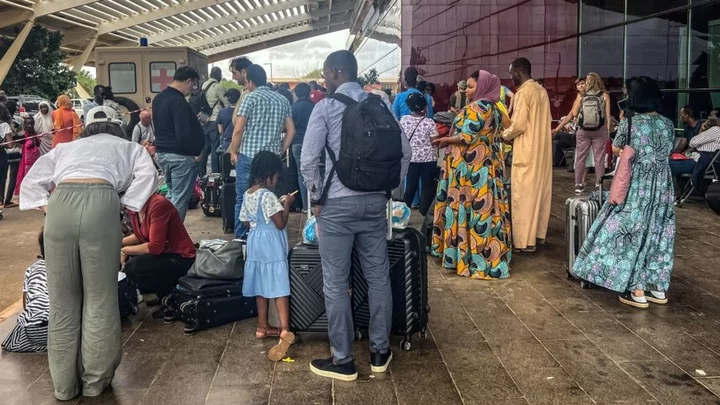
Niger: First UK nationals safely out of the country, foreign minister says
The Foreign Office gave no further details of how many UK nationals have left the country or how.
1970-01-01 08:00
